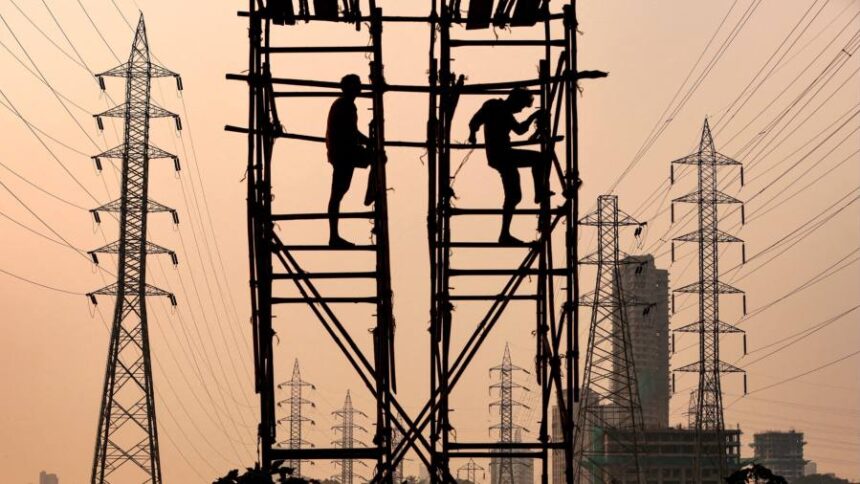Receive free Climate change updates
We’ll send you a myFT Daily Digest email rounding up the latest Climate change news every morning.
Several countries led by Saudi Arabia have blocked a move by G20 nations to reduce the use of fossil fuels, in the latest sign of the global tensions over the future role of oil, gas and coal as the world grapples with climate change.
G20 countries released a summary document on Saturday after several days of intense discussions hosted by India in Goa. It said that some member states had emphasised the need to cut back the use of fossil fuels without the capture of emissions “in line with different national circumstances”. But others “had different views on the matter”.
Those countries instead want to focus on the development of technology to capture greenhouse gas emissions.
Several people familiar with the negotiations said Saudi Arabia was prominent in the push against phasing down fossil fuels, and was backed by several other countries.
In past negotiations Russia and China have consistently opposed the move, and they stymied a pact at the UN climate summit in Egypt late last year.
The G7 nations have already agreed to accelerate the phasing out of fossil fuels.
Saturday’s gathering also failed to make progress on setting a global goal for renewable energy development.
The deadlock comes as countries around the world are suffering extreme weather including severe heatwaves and flooding.
The EU has been a leading supporter of efforts to shift away from burning fossil fuels, which account for about three-quarters of all greenhouse gas emissions.
Alden Meyer, senior associate at consultancy E3G, said there were “sharp divisions on display” at the G20 meeting “around the need for a fair, fast, and equitable transition away from fossil fuels”.
“With temperature records being set daily around the world and the impacts of climate change spiralling out of control, the world needed to hear a clarion call to action,” he said. “Instead, what we got was very weak tea.”
Speaking at the end of the meeting, RK Singh, India’s minister of power, acknowledged that the reduction of fossil fuel production was a “sticking point” in the discussions. He said a larger part of the G20 was in favour and it was a “great conference”.
India has committed to reach net zero by 2070, while China has set a 2060 goal to be “carbon neutral”.
A report prepared for India’s G20 presidency estimated the cost of the energy transition at $4tn a year globally and stressed the need for finance for developing countries; this has become a key demand of India’s prime minister Narendra Modi.
The failure to reach an agreement is likely to pile pressure on to the United Arab Emirates to intensify its discussions with ministers and leaders. It will host COP28 in December.
Earlier this month, Sultan al-Jaber, president-designate of COP28, laid out his vision for the climate summit, which focuses heavily on climate finance for poor countries to help them cope with the consequences of global warming, as well as a rapid expansion of renewable energy.
He also set out a “mid-century” goal for a reduction in the use of fossil fuels produced without capturing their emissions. Previously, he had said that the reduction of fossil fuel use was “inevitable”.
Global emissions need to be cut by 43 per cent by 2030 to stop temperatures rising above 1.5C above pre-industrial levels, the threshold at which scientists have warned of potentially irreversible changes to the planet and devastating consequences for citizens, according to the Intergovernmental Panel on Climate Change.
But the world is on track for a temperature rise of between 2.4C and 2.6C by 2100, according to the UN Environment Programme. Temperatures have already risen at least 1.1C.
Climate Capital

Where climate change meets business, markets and politics. Explore the FT’s coverage here.
Are you curious about the FT’s environmental sustainability commitments? Find out more about our science-based targets here








